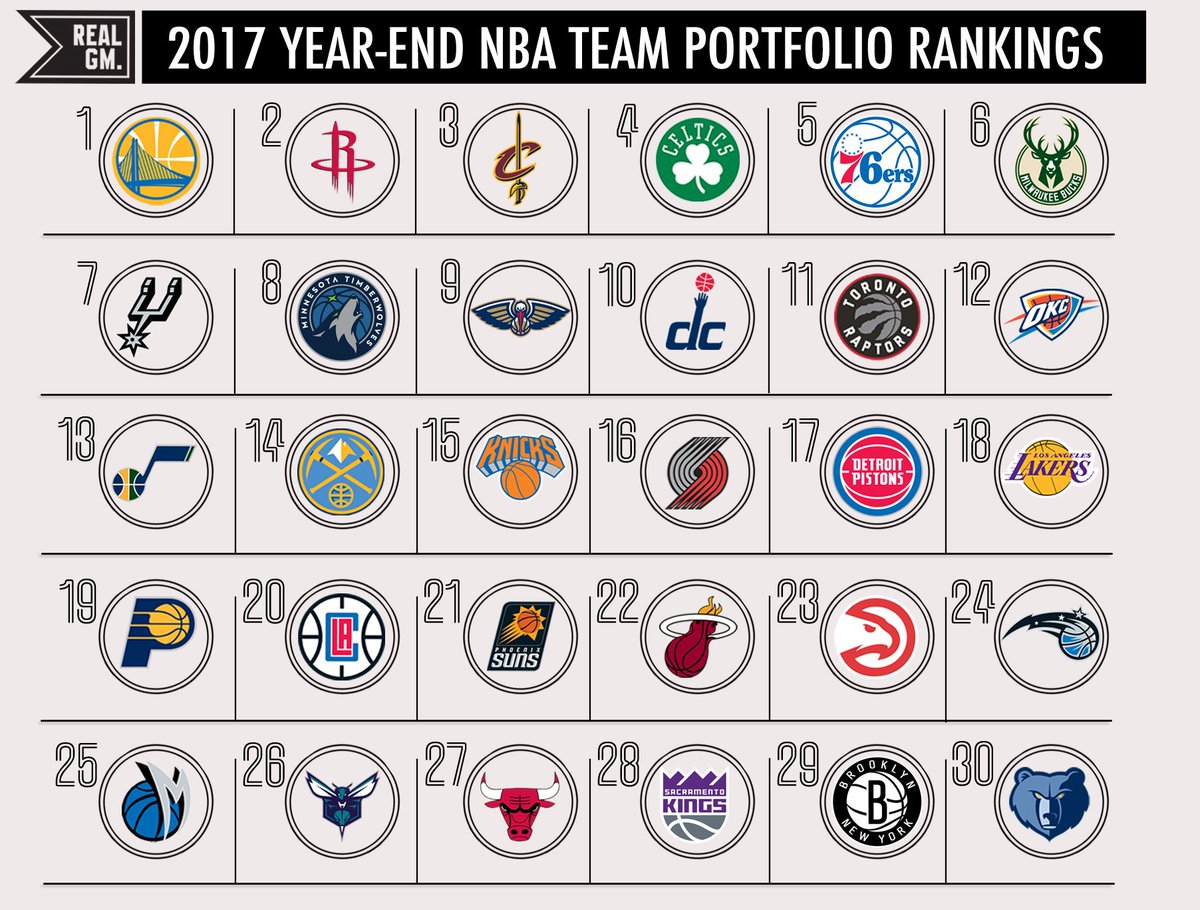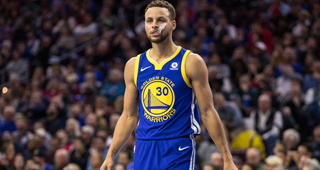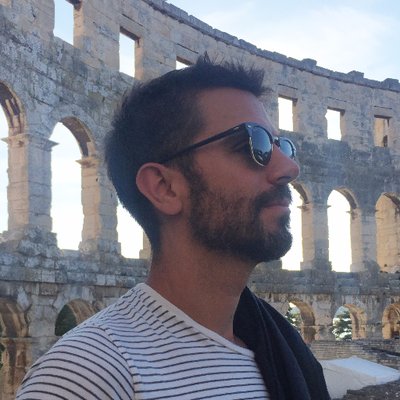For the third straight year, we have created a year-end team portfolio ranking for all NBA teams. The exercise is to evaluate every team as if they were a portfolio of assets to determine which is most valuable in terms of their on-floor capabilities.
The only considerations are talent, age, cap flexibility and future draft picks with the goal being to eventually compete for and win the NBA Finals. An older team already contending is more highly valued than a younger team with a ton of talent that may not get there, but the younger team with upside is a better bet than an older team that’s currently better but without the upside.
There is no consideration given to team location, history, head coach, general manager or owner. The exercise is to isolate the conditions of the assets to assess their value.
The NBA has an ever-changing landscape but this creation of a hierarchical ranking gives a look to how we would pick their collective situations at the end of 2017. Last year's rankings are in parenthesis, which you can also read here and 2015 here.
- Also see RealGM's 2017 Year-End Team Portfolio Rankings for the NFL, MLB and Soccer.
30. Memphis Grizzlies (21): If the Grizzlies feel inclined to trade away Marc Gasol and Mike Conley to begin their rebuild, their leverage has cratered since the offseason. They’re stuck with Chandler Parsons now for the duration of his max contract. Memphis keeps their pick this year and then it is owed to the Celtics, and they could remain bad enough for 2019 and 2020 to protect it before it becomes completely unprotected in 2021. Between ownership upheaval issues, the draft misses and those big contracts, the Grizzlies are beyond resuscitation and have finally given Brooklyn a reprieve from the last slot on this list.
29. Brooklyn Nets (30): The Nets have been making shrewd moves in collecting buy-low reclamation projects and simply renting out cap space in exchange for assets. There are talented pieces here but not yet any players who feel like franchise cornerstones. The end, at long and painful last, is in sight on the Boston deal with this year’s pick going to Cleveland. There's enough evidence to have faith in Sean Marks and Kenny Atkinson that they'll be moving up this time next year on this list.
28. Sacramento Kings (23): The Kings continue to have severe roster imbalances, no definite franchise star of the future (though that may very well be De’Aaron Fox) and the veterans they signed this past offseason haven’t really moved the needle. The completely unprotected pick they’re losing in 2019 may end up being supremely costly depending on what happens during this year’s lottery. The Kings at least traded Cousins
27. Chicago Bulls (22): It felt like the Bulls rushed into the Jimmy Butler trade and could have built a top-4 team in the Eastern Conference around him with their 2017 cap space, but the deal doesn’t look as bad now that we’re a few months away from it. Kris Dunn has actually looked like an NBA starter at point guard this season, Lauri Markkanen can play at this level and Zach LaVine will be back soon. They’ve been winning more games than expected to hurt their lottery position but they should have an encouraging core in a year or two instead of treading water overlaying this core with a two or three high lottery picks.
26. Charlotte Hornets (16): The Hornets are now in purgatory after keeping the core of that 15-16 team that has since fallen off where they have become unrecognizable. The exception has been Kemba Walker, who will be a free agent in 2019.
25. Dallas Mavericks (29): Dennis Smith Jr. has obvious All-Star potential if he can stay healthy and shoot it well enough. Dallas also owns all of their picks and will have max cap space this offseason. The way the Mavericks are conceiving their next playoff contender while letting Dirk Nowitzki go out on his own terms is admirable.
24. Orlando Magic (28): The backcourt and wing positions need upgrades if they’re ever going to end their lottery streak, but Aaron Gordon and Jonathan Isaac have potential to be an exciting power forward/center combination over the long-term. Nikola Vucevic has also played well and is on an affordable contract that makes moving him for a pick relatively easy.
23. Atlanta Hawks (26): It’s difficult to get too excited about Dennis Schroder and Kent Bazemore, but John Collins and Taurean Prince have legitimate starter potential. The Hawks also own three first round picks this year and should remain bad enough to get a top-5 pick in a top-heavy draft.
22. Miami Heat (27): The Heat re-signed the core of last year’s second half run, which assures a level of respectability but not the variability that Pat Riley historically trafficks in. The first round picks owed to the Suns with this lack of upside is potentially perilous.
21. Phoenix Suns (25): Devin Booker is a talented scorer but his issues on defense limit his upside and also restrict Phoenix on the type of point guard to place beside him. The lack of development for both Dragan Bender and Marquese Chriss has been disappointing.
20. Los Angeles Clippers (3): The Clippers did well in what they got back from Houston for Chris Paul, but they’re now a fringe playoff team instead of a fringe title contender. Blake Griffin is still an elite talent with a unique skill-set at the 4 but he’s undependable in terms of health and his $173 million deal is loaded with obvious risk. DeAndre Jordan’s future will be decided this year and they’re better off re-signing him considering his clean injury history even if he’s typically been overrated in most corners.
19. Indiana Pacers (14): Perhaps this is an overrating of two months of unsustainable basketball, but it’s difficult to recall a trade where the immediate conventional wisdom has proven to be misguided so quickly in retrospect, if not flat out wrong, in what the Pacers got back for Paul George. Victor Oladipo has played like an All-Star and Domantas Sabonis has been productive. The ceiling of Myles Turner is settling in a bit lower than expected, but he can certainly be a high quality big on a good team.
18. Los Angeles Lakers (19): How do we weigh how impressive Kyle Kuzma has been with the inconsistent play of Lonzo Ball? Ball has been good at times but he will need to get his shot operational for his game to work at even a replacement level. I’d wager on Ball getting there and becoming at least a fringe All-Star. Brandon Ingram and Julius Randle have shown progress this year, and Kentavious Caldwell-Pope was an easy, no risk acquisition that has allowed the Lakers to play with more force. The 2018 pick is gone and they’ll need to attach more picks and/or players to clear the rest of the space they’ll need to sign multiple max players. The Lakers could very easily be a top-5 team on this list next season and this ranking is more of an indication of their young talent and the value of cap space in 2018.
17. Detroit Pistons (24): Andre Drummond has bounced back in Year 2 of his new deal as had Reggie Jackson before his recently injury as he reaches the halfway point of his five-year deal signed in 2015. Tobias Harris is shooting the three-pointer all the time and he’s shooting it well.
16. Portland Trail Blazers (15): As good as Damian Lillard and CJ McCollum are in the backcourt, there’s too many replacement level players around them with limited means of making a meaningful upgrade even if the Jusuf Nurkic trade last year was one of the most blatant steals in recent memory.
15. New York Knicks (20): Kristaps Porzingis could be an MVP candidate with how he changes the geometry on both sides of the floor, but he needs to prove he’s capable of remaining healthy and he could also use a real point guard. Frank Ntilikina has been impressive at times, while Tim Hardaway Jr.’s contract doesn’t feel as onerous as it did in July. Enes Kanter is the perfect center for a team in the East trying to get the 8th seed, but let’s not forget the clear reasons why Oklahoma City salary dumped him. The Joakim Noah contract will plague this franchise until he’s stretched or his contract expires as they could have been an attractive cap space team.
14. Denver Nuggets (17): Denver added Paul Millsap on a reasonable contract to help accelerate their core of Nikola Jokic, Jamal Murray and Gary Harris. Millsap went down early but they’ve managed to remain a probable playoff team.
13. Utah Jazz (10): Since last year, the Jazz lost Gordon Hayward for good, lost Dante Exum to another season-ending injury and still haven’t traded away Derrick Favors. But Rudy Gobert is one of the best centers in the league when healthy and they have an explosive young scorer in Donovan Mitchell.
12. Oklahoma City Thunder (13): There’s still a lot of season left on the Paul George experiment (and of course his offseason), but signing Russell Westbrook to his extension was the result of Sam Presti’s ambitious offseason and that’s a win no matter how beleaguered it feels at times. With Oklahoma City’s athleticism and length, there’s a formula to how they could grind out close games against anyone, but they are consistently plagued by one-way role players and how they’re always less than the sum of their parts.
11. Toronto Raptors (6): DeMar DeRozan continues to get better and Kyle Lowry has staved off decline. Lowry’s contract was especially team friendly as the Raptors can pivot away from this core quite easily in 2020. A trade of Jonas Valanciunas feels as inevitable as ever. OG Anunoby and Jakob Poeltl have shown enough for the Raptors to continue on this dual path.
10. Washington Wizards (18): John Wall and Bradley Beal are All-Star talents, while Otto Porter Jr. and Kelly Oubre continues to improve. The Wizards’ bench is also better than it has been in the past and they own all of their own first rounders in case there’s a trade to made for the impending free agent from the next team on the list.
9. New Orleans Pelicans (11): Jrue Holiday is on a monster contract and DeMarcus Cousins will either walk or be on one as well with neither scenario being one that sounds particularly appealing. The role players still aren’t right. But Anthony Davis is signed through 2020 and is a perennial MVP candidate if he ever gets on a decent team.
8. Minnesota Timberwolves (5): The Wolves are so talented are so frequently galling. They acquired Jimmy Butler without sacrificing anything of true import but their ceiling somehow feels betrayingly lower now than it did a year ago. They skipped the step of being the young, exciting and rambunctious League Pass darling enjoying their first playoff run and now slough through too many tough wins with unimaginative offense and disappointing defense. Karl-Anthony Towns is even more talented on offense than we envisioned but his defense is incomprehensibly mediocre. Andrew Wiggins is an inefficient scorer who doesn’t do anything else and is now on an excessive contract. The role players are uninspiring and that starts with Jeff Teague. Promise remains now that they’re out of the embryonic phase but it is not as limitless as it felt at the end of Towns’ rookie season.
7. San Antonio Spurs (4): There have been some puzzling moves made by the Spurs over the past few months that limited their ability to be a cap space team in the near future: re-signing Pau Gasol for $48 million over three years, extending LaMarcus Aldridge for $72.3 million over three years, letting Jonathon Simmons walk and signing Rudy Gay at all. They’ve all worked out so far even if it’s hard to see this team being anything other than very good around Kawhi Leonard instead of title good around him.
6. Milwaukee Bucks (7): Giannis Antetokounmpo on his own would put Milwaukee in the top-10, but there’s a lot of surrounding talent if they can ever figure out how to maximize it and if Jabari Parker can stay healthy.
5. Philadelphia 76ers (8): There’s a lot of work and injury luck left before they even become Conference Finals contenders, but Joel Embiid and Ben Simmons are two of the best half dozen or so young talents in the league. It’s easy to envision one or both players being All-NBA First Team selections, if not MVP candidates. The Robert Covington extension was a smart move, even if it restricts their cap space in 2018. Philadelphia should consider dealing Dario Saric before he ends up on the same path as Nerlens Noel and Jahlil Okafor. There was also a reason why Markelle Fultz cost Philadelphia that extra lottery ticket draft pick they sent to Boston, even if he’s no longer the sure thing he seemed to be back in June. If the 76ers become a title team, they will need Fultz’s shot creation to offset Embiid and Simmons.
The multitudinous ways Philadelphia can add to this core is no longer what it was now that we’re nearly two years out of the Hinkie regime and into the Colangelo one, and that’s why they’re behind Boston even if the 76ers’ current core has more convincing high end talent.
4. Boston Celtics (12): The Celtics are quite obviously in a far better position than they were a year ago after trading for Kyrie Irving, signing Gordon Hayward and turning the top pick into Jayson Tatum and an additional probable lottery pick. Irving, Hayward, Brown and Tatum will make a great core for a long time, though one of the latter two players certainly may be moved eventually to finally acquire a true MVP talent such as Anthony Davis that they have lacked despite all of their asset maneuvering. As they have been throughout the Brad Stevens’ era, this is a very good regular season team who meticulously maximize their talent every night that remains an unfinished product just short of true title contention.
3. Cleveland Cavaliers (2): Cleveland was initially as low as No. 8 on this year’s list, but I bumped them back up to No. 3 because LeBron James dependably remains the best player on the planet and has shown zero decline where that will stop being the case in the immediate future.
Here’s a thought exercise: is there a single player in the NBA who is a safer bet to remain a top-5 MVP candidate for more years moving forward than LeBron James despite being 33? Stephen Curry, Kevin Durant, James Harden and Russell Westbrook are only 4-5 years younger than him and each have their unique issues to question their longevity projections. Who knows which of the unicorn big men can stay healthy and be two-way stars in an NBA that has been owned by wings since Shaq’s last MVP level season? Giannis Antetokounmpo, Anthony Davis and Kawhi Leonard could be the three safest bets, though Giannis still can’t shoot while Kawhi and AD have had injury issues of their own.
The future of LeBron with the Cavaliers appears more tenuous than it even did at this time in 09-10, but at least they have that Brooklyn pick and the tradeable contracts of Kevin Love and Jae Crowder if he leaves and they need to rebuild again. Unlike in 2010 and 2014, there isn’t an obvious team LeBron can join to upgrade his title chances without accepting a below max salary.
2. Houston Rockets (9): The aggressiveness of Daryl Morey has paid off so far this year with a roster best equipped to credibly challenge the Warriors. James Harden is in the best shape of his career after signing his extension that ties him to Houston for the balance of his prime, while they also acquired Chris Paul with enough remaining options to build a better supporting cast than last season. Houston will surely re-sign Clint Capela in restricted free agency and have a disproportional shot at LeBron considering the cap gymnastics that would be required.
The system works, the pieces fit and the MVP level talent is there with the perfect role players.
1. Golden State Warriors (1): Since last year, the Warriors re-signed Stephen Curry to a five-year deal while Kevin Durant signed a below max, short-term deal to give the Warriors flexibility to maintain their supporting cast. The Warriors also added Jordan Bell who is already allowing them to play in a similar way as the Draymond Green at center lineup without putting those miles on Green.
The Warriors would remain No. 1 on this list even if they lost one of their Big 4, which informs how big the gap is between them and everyone else.




